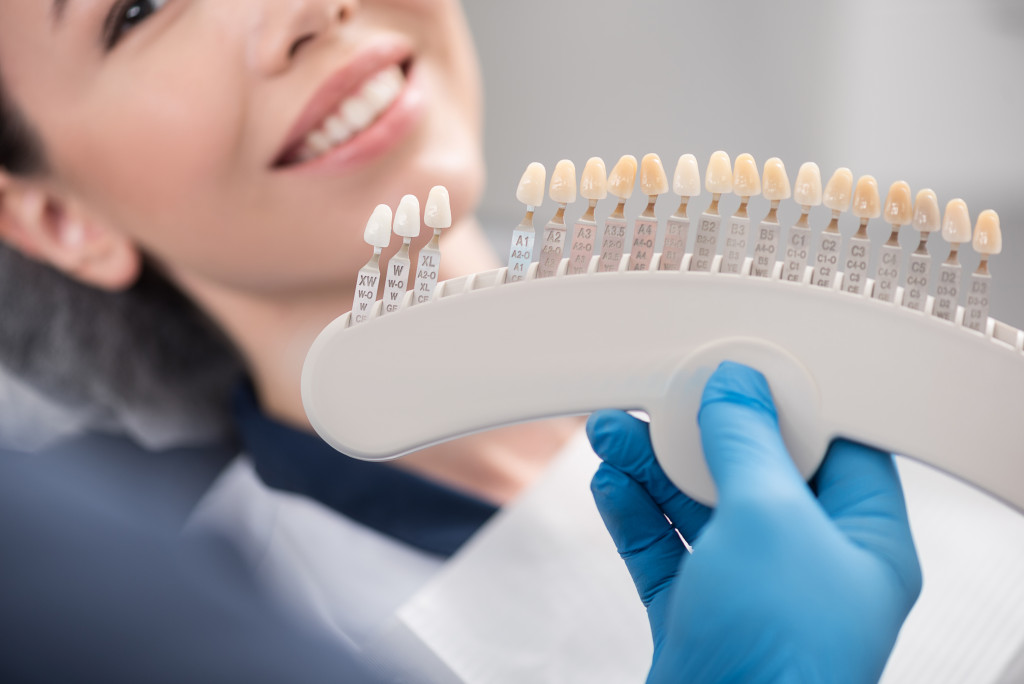- Stay hydrated to improve nutrition — carry a refillable water bottle throughout the day.
- Get enough sleep, 7-9 hours each night, for bodies to absorb essential vitamins and minerals.
- Incorporate healthy fats and leafy greens into your diet for optimal nutrient absorption.
- Practice basic oral hygiene and get dental treatment if necessary — this will help with digestion and prevent further damage.
It’s no secret that getting the right vitamins, minerals, and nutrients is essential for a healthy lifestyle. But between busy schedules, packed meals, and making time for exercise — it can be hard to ensure you stay on top of your nutrition game. Here are alternative ways to make sure you’re on track with your health goals:
Stay Hydrated
Water is essential for bodies to survive, but did you know it’s also necessary for proper nutrition? Dehydration can lead to fatigue and a lack of energy. Be sure to carry a refillable water bottle throughout your day, and watch for thirst cues. This easy trick will help keep you hydrated and improve your overall health.
Get Enough Sleep
Not getting enough restful sleep can affect how efficiently bodies function. A person needs between 7–9 hours of sleep each night to give the body time to recharge and prepare for the next day. Without proper rest, the body cannot effectively absorb essential vitamins and minerals from food — leading to nutrient deficiencies.
Follow a Sleep Routine
Prioritize restful sleep by going to bed at the same time each night and creating a consistent sleep routine. This will help improve your digestive health and provide essential nutrients for a healthy lifestyle.
Incorporate Essential Oils
Sometimes, you need extra help getting a good night’s rest or having more energy for the day. Incorporating essential oils into your sleep routine can help regulate your snooze cycle and provide energy throughout the day. Lavender oil, for instance, is known for its calming and relaxing properties — helping people get a better night’s sleep.
Eat a Variety of Foods
Many people stick to a single type of food for each meal, which can lead to missing out on essential nutrients. Eating various foods provides the body with the different vitamins and minerals it needs. So try incorporating variety into your diet with any of the following:
Choose Healthy Fats
Healthy fats are essential to include in a balanced diet. Avocados, olive oil, and nuts are all great sources of healthy fats and can provide beneficial vitamins and minerals. Try to include necessary fatty acids in every meal — whether avocado toast for breakfast or a handful of nuts as a mid-afternoon snack.
Invest in Leafy Greens
Greens are incredibly nutrient-dense and high in vitamins and minerals. Kale, spinach, broccoli — all these leafy greens provide essential vitamins and minerals for a healthy lifestyle. Try adding them to smoothies, salads, or even stir-fried dishes.

Supplement When Necessary
Vitamins and minerals can also be taken in supplement form when necessary. Some vitamins, like Vitamin D, cannot be obtained through food sources and require supplementation. Consult with your healthcare provider to determine if a supplement is right for you.
Oral Health Matters Too
Good oral hygiene habits are essential for teeth and can impact nutrition too. Poor oral health can lead to difficulty chewing, speaking, and even swallowing — ultimately affecting the body’s ability to absorb vital nutrients from food.
Practice Basic Oral Hygiene
Maintaining good oral health habits, such as brushing twice a day with fluoride toothpaste, will help with digestion. This decreases the risk of infections or irritation in the digestive tract from bacteria found in plaque buildup or cavities. You can also try flossing and using mouthwash to ensure you eliminate food particles or whatever else may be causing bacteria buildup.

Get Dental Treatment
Additionally, pay close attention to damaged teeth; if you experience any missing, chip, or crack in your tooth, you must fix the issue immediately through restoration or tooth replacement options. Dental restoration means repairing any damage or decay in the tooth, which can prevent further damage and help with proper nutrition.
On the other hand, a quality tooth replacement is exactly as it sounds. It means replacing a missing tooth with a prosthetic one. This involves inserting titanium posts into the gum line, which fuse with the jawbone, then attaching crowns or dentures over the top.
There is more to nutrition than just food. Incorporating small changes, like the ones listed above, can positively impact your health. With the proper habits and knowledge, you can ensure your body gets all the vitamins, minerals, and nutrients it needs for a healthy lifestyle.

